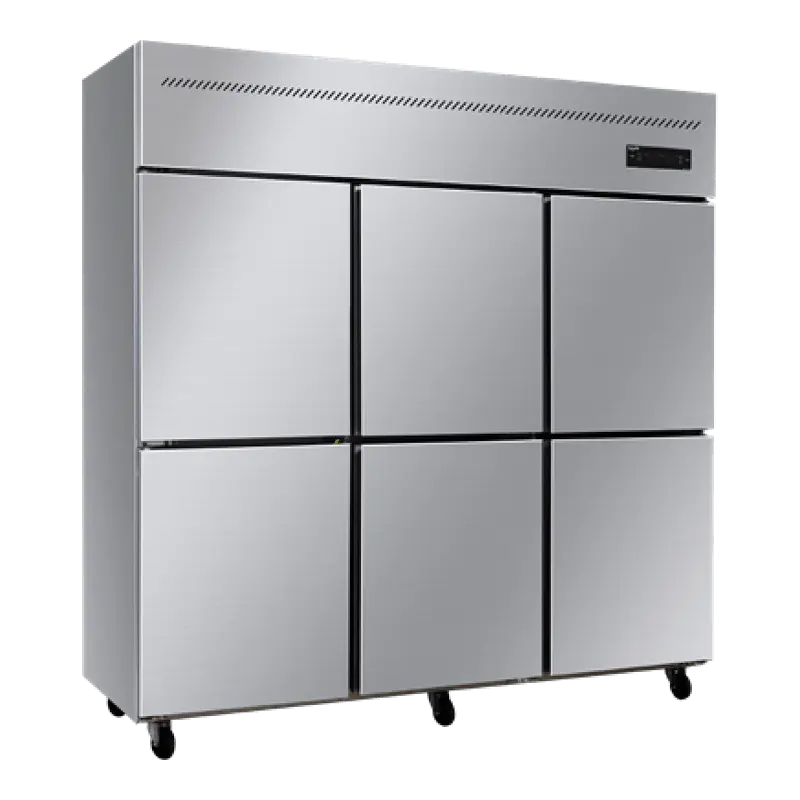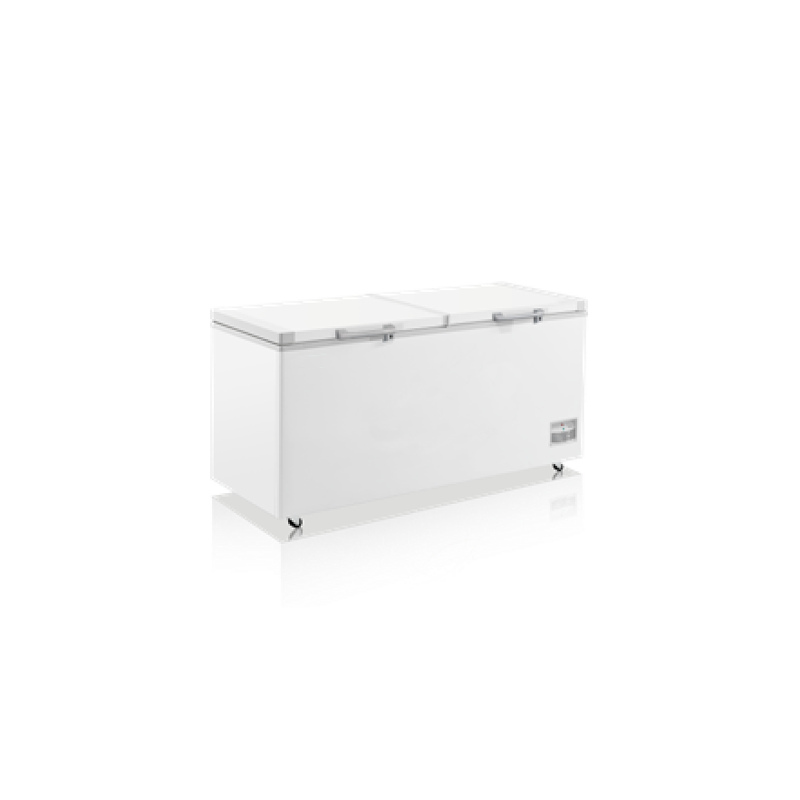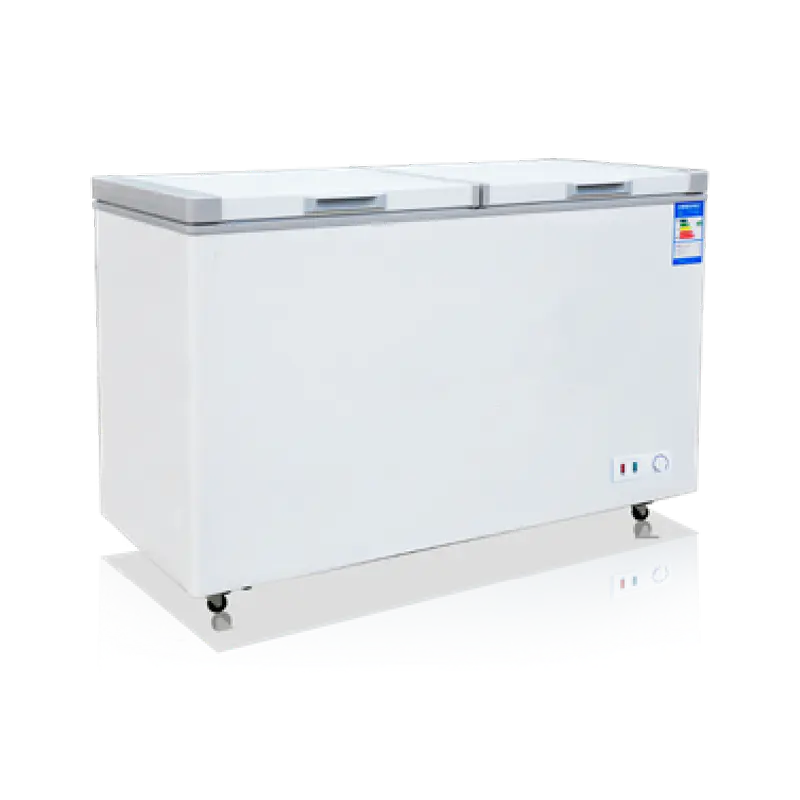The Importance of Low Noise in Commercial Refrigeration Systems
Why Low Noise Matters in Commercial Refrigeration
In many stores, kitchens, pharmacies, and hospitality spaces, refrigeration runs continuously. That makes noise from compressors, condenser fans, and airflow a constant part of the environment. The importance of low noise in commercial refrigeration is not cosmetic—it impacts staff fatigue, customer dwell time, brand perception, and how well an installation fits into mixed-use buildings.
Noise is also a practical engineering constraint. A system that is “quiet enough” during commissioning can become noticeably louder after a few months if vibration isolation, airflow margins, and maintenance access were not designed into the project.
Key takeaway: treating noise as a first-class performance metric—alongside capacity, efficiency, and temperature stability—reduces rework, complaints, and premature component wear.
Where Refrigeration Noise Comes From
To control noise, you first need to identify the dominant source. In commercial refrigeration, noise usually falls into two categories: airborne noise (fans, airflow turbulence) and structure-borne noise (vibration transmitted into frames, walls, floors, or piping).
Common airborne noise sources
- Condenser fans: blade pass frequency “tone” that becomes obvious in quiet dining or retail areas.
- Evaporator fans: higher-frequency hiss/whine amplified by case geometry and grilles.
- Air turbulence: restrictive louvers, dirty filters, or undersized airflow paths creating broadband noise.
Common structure-borne noise sources
- Compressor vibration: transmitted through the base pan, skid, or mounting bolts into building structure.
- Refrigerant piping resonance: poorly supported lines acting like “sound bars,” especially at elbows and long straight runs.
- Panel rattle and door hardware: small clearances turning into buzzes at specific RPMs.
A practical rule: if you can “feel it” by lightly touching adjacent surfaces (countertop, frame, wall), you are dealing with structure-borne vibration. If it is mostly heard at a distance or changes with airflow restriction, it is likely airborne.
Noise Metrics That Procurement and Facilities Can Actually Use
Noise discussions often fail because different stakeholders talk in different metrics. For specifying low-noise commercial refrigeration, align on a measurement approach before you compare products.
Sound pressure vs. sound power
Sound pressure level (SPL, dBA) is what a listener experiences at a location (for example, 1 meter from the unit). It varies with room acoustics and distance. Sound power (dB) describes how much noise the equipment emits independent of the room, making it better for apples-to-apples comparisons—if vendors provide it.
Why “small” dB changes matter
Decibels are logarithmic. A 3 dB change represents roughly a doubling or halving of acoustic energy. In practical terms, shaving even a few dB from a continuous refrigeration source can noticeably reduce annoyance—especially in quiet periods like early mornings, evenings, or overnight operation in mixed-use buildings.
A procurement-friendly acceptance test
- Measure dBA at a defined point (commonly 1 m from the loudest face) with the unit at steady state.
- Record operating mode (compressor stage, fan speed, defrost status) to ensure repeatability.
- Repeat after installation with doors/panels secured and final piping supports in place.
Tip: require the vendor to declare test conditions (distance, background noise, operating mode). Without conditions, a “quiet” claim is not enforceable.
Operational Impacts: Staff, Customers, and Neighbor Complaints
Low noise is not only a comfort feature; it is an operational control. Continuous tonal noise (fan whine) and intermittent events (defrost clicks, contactor chatter) can drive complaints faster than steady broadband sound.
Staff comfort and communication
In foodservice and retail, staff work close to cases for long durations. Persistent noise increases perceived workload and makes verbal communication harder—leading to repeated instructions, errors, and fatigue. Quieter equipment is a low-effort way to improve the work environment without changing staffing or workflows.
Customer experience and brand perception
Customers associate loud humming, rattling, or cycling clunks with “old” or “poorly maintained” equipment. In hospitality, noise competes directly with ambiance. In pharmacy and healthcare, it competes with privacy and calm. Low noise supports higher perceived quality in the same square footage.
Noise complaints as a cost driver
Complaint-driven work orders are expensive because they are urgent, disruptive, and often require after-hours labor. A low-noise design reduces “mystery rattle” callbacks, tenant disputes, and rework (such as retrofitting isolation mounts or adding acoustic barriers after the fact).
Specifying Low-Noise Equipment Without Sacrificing Reliability
A quiet system is not achieved by adding insulation everywhere; it is achieved by selecting components that generate less noise in the first place and then preventing noise transmission. The best specifications are performance-based and verifiable.
What to look for in product documentation
- Declared dBA with distance and operating mode stated (fan speed, compressor staging).
- Variable-speed fan control to reduce tonal noise during low load.
- Compressor mounting strategy (isolation grommets, floating base, or integrated vibration control).
- Service access that allows panels to be fastened correctly (loose panels become buzz sources).
Avoid the “quiet but starved” airflow trap
Some installations attempt to reduce noise by choking airflow with restrictive grilles or surrounding the condenser with tight cabinetry. That can backfire: higher head pressure and elevated fan speed can make the system louder and reduce compressor life. Low-noise commercial refrigeration should be achieved through efficient airflow paths and smart controls, not suffocation.
Practical spec line: “Equipment shall meet declared noise level under defined steady-state operation without restricting airflow beyond manufacturer requirements.”
Installation Practices That Prevent Noise Problems
Many “noisy unit” complaints are actually installation issues. The same model can be acceptable in one site and unacceptable in another due to mounting, piping, and resonance paths.
Vibration isolation basics
- Use appropriate isolators (pads, springs, grommets) matched to equipment weight and vibration frequency.
- Avoid rigid “short circuits” such as hard contact between the unit base and adjacent framing.
- Confirm that shipping brackets are removed (a frequent, high-impact oversight).
Piping support and resonance control
Refrigerant lines should be supported to prevent long unsupported spans and to avoid contact with walls and studs. Where applicable, incorporate vibration-absorbing sections and ensure clamps do not create metal-to-metal rattle points. A single line touching a wall can transmit a compressor’s vibration into an entire room.
Placement strategy for customer-facing spaces
In retail and hospitality, place higher-noise components (condensing units, remote condensers) away from seating, checkout, consultation windows, or quiet aisles. If relocation is impossible, prioritize low-tone designs, isolation, and airflow management to reduce the most noticeable frequencies.
Maintenance: Keeping a Quiet System Quiet
Noise often increases gradually—making it easy to miss until a customer complains. Noise should be treated as a condition-monitoring signal, similar to temperature drift or energy spikes.
Common “noise creep” causes
- Dirty condenser coils driving higher fan speed or turbulent airflow.
- Fan imbalance (dust accumulation, damaged blades) creating vibration and tonal noise.
- Loosened panel fasteners or hinge hardware leading to buzzing at specific RPMs.
- Worn bearings in fan motors causing a rising whine or rumble over time.
A practical noise-focused PM checklist
- Listen at startup, steady-state, and shutdown; note any new tonal sounds or rattles.
- Inspect fan blades and guards; clean and verify clearance to prevent rub noise.
- Torque-check accessible fasteners (panels, base mounts) and replace missing hardware.
- Verify piping supports and look for new contact points caused by thermal expansion.
Operational benefit: addressing small noise changes early often prevents larger failures (fan motor burnout, compressor mounting damage, line rub leaks).
Typical Noise Mitigations and What They Achieve
Noise mitigation is most effective when it targets the dominant source. The table below summarizes common interventions, when they make sense, and the typical direction of impact. Actual results depend on site acoustics and installation quality.
| Intervention | Best For | Typical Outcome | Implementation Notes |
|---|---|---|---|
| Vibration isolators under base | Compressor-driven structure vibration | Reduces transmitted rumble and buzzing | Must be sized to load; avoid rigid bypass paths |
| Variable-speed fan control | Tonal fan noise during low load | Lower average noise and smoother sound profile | Confirm controls maintain safe head pressure |
| Fan balancing / blade replacement | Vibration, cyclical thumping, new whine | Eliminates imbalance-driven vibration paths | Often paired with coil cleaning |
| Piping supports and clearance fixes | Resonance and vibration transmission | Reduces “mystery” wall/floor buzz | Look for contact points created by expansion |
| Panel/door hardware tightening | Rattles, buzzing, intermittent clatter | Targets high-annoyance noises quickly | Use threadlock where appropriate; replace missing fasteners |
If a site is sensitive (boutique hotel, high-end dining, residential adjacency), the most effective approach is to combine source reduction (lower-noise fans/controls) with path control (isolation and correct mounting).
A Practical Buyer’s Checklist for Low-Noise Commercial Refrigeration
Use this checklist to keep noise from becoming an afterthought during procurement. It is designed for operators who want a clear, defensible way to select and accept equipment.
- Request declared noise data (dBA and/or sound power) with test conditions and operating mode.
- Ask whether noise varies by compressor staging, defrost, and fan speed—and what the “worst case” looks like.
- Confirm included vibration isolation components and whether additional field-installed isolation is recommended.
- Review installation clearances to ensure airflow is not restricted by millwork, walls, or adjacent equipment.
- Define an acceptance test point and procedure so “quiet” is measurable, not subjective.
Recommended contract language: include a noise performance requirement tied to a test method and allow corrective action (isolation, balancing, support changes) if the installed system exceeds the declared level under defined conditions.
Closing Guidance: Make Noise a Design Input, Not a Warranty Dispute
The importance of low noise in commercial refrigeration is ultimately about predictability. Quiet systems are easier to site, easier to live with, and less likely to generate urgent service calls that disrupt operations.
Best practice: specify measurable noise targets, choose components that can operate quietly without airflow restriction, install with vibration control and proper supports, and treat noise changes as an early maintenance indicator.
When noise is managed proactively, the result is not only a better guest and staff experience—it is a refrigeration asset that performs more consistently over its full service life.


 English
English русский
русский Español
Español عربى
عربى













